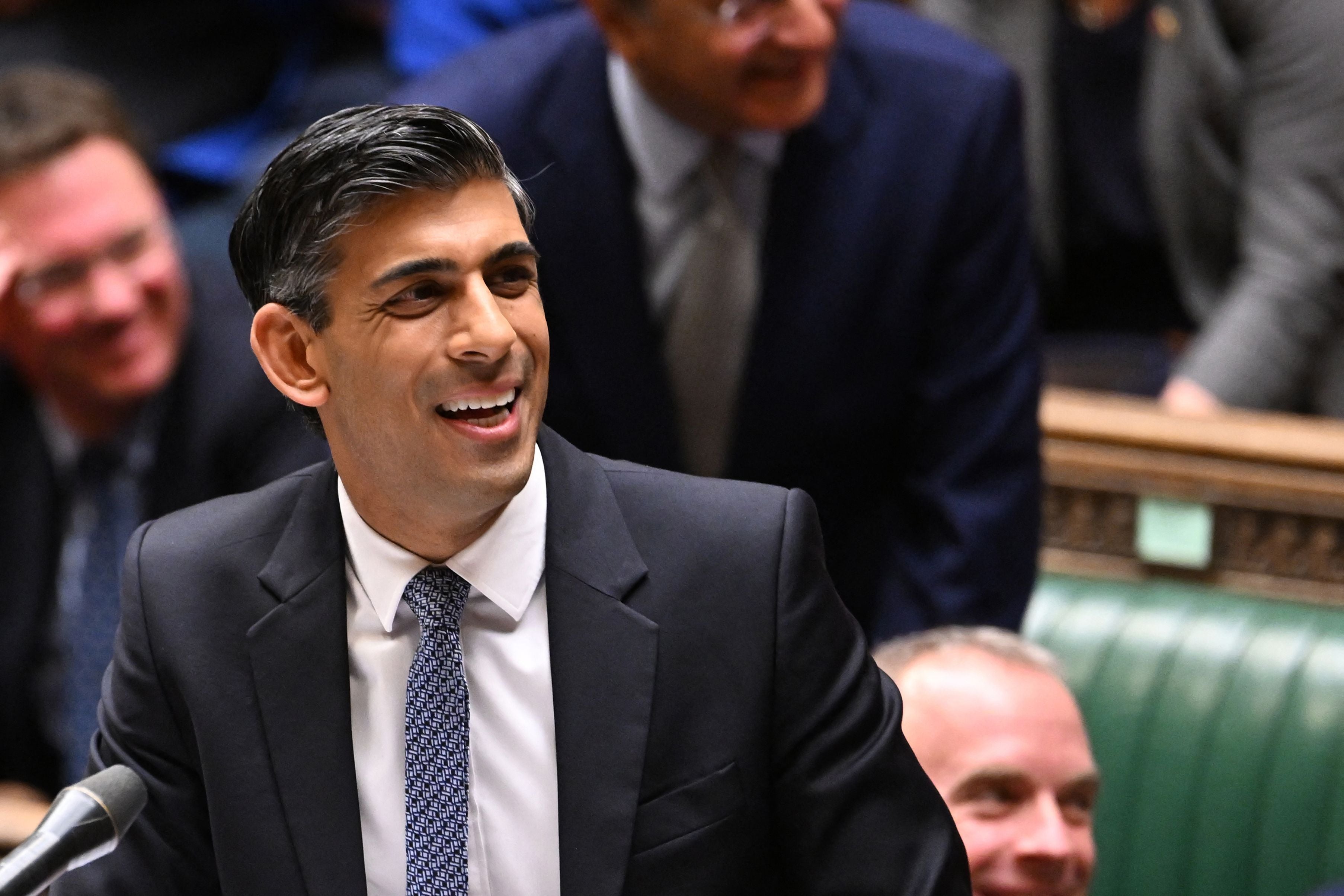Why some Tory MPs will never be satisfied with Rishi Sunak
Priti Patel wants the government to ignore the European Court of Human Rights if it tries to prevent the removal of failed asylum seekers, writes John Rentoul


The British government is not going to withdraw from the European Court of Human Rights, however much a vocal section of the Conservative Party wants it to. I make this prediction not because the idea is mistaken, although I think it is, but because of the political realities.
There are two. One is that there isn’t a majority in the House of Commons for repudiating the European Convention – the international treaty that set up the court in the 1950s. There are enough Conservative MPs who support the convention to wipe out Rishi Sunak’s majority.
Even if the necessary number of MPs were persuaded to support the plan, the second reality is that there isn’t a majority in the House of Lords for it either. Withdrawing from the court was not in the Conservative manifesto. All the manifesto said was “we will update the Human Rights Act” – the British law that incorporates convention rights. So the Lords would not feel bound by its usual principle of deferring to the elected chamber. It would block any legislation that seeks to override the European court.
That was why Sunak told the Commons this week that his plan to deter small boats crossing the English Channel was compatible with the European convention. He knows it has to be. Just as Priti Patel knew her policies had to be when she was home secretary. She was engaged in Tory impossibilism yesterday when she voted for Jonathan Gullis’s motion demanding the removal of failed asylum seekers “notwithstanding inconsistency or incompatibility” with international law.
It may be that she is sincere, in that she believes Britain should pull out of the European court, but also that she recognised the political constraints when she was in the cabinet – just as Suella Braverman, her successor, has made her personal views of the ECHR perfectly clear. Now that Patel is no longer bound by collective ministerial responsibility, she is entitled to express her view.
Nevertheless, it is still a form of Tory Corbynism: an impractical policy that goes down well with the party membership because it is simple, bullish and promises to tear down the elitist consensus. Maybe Patel will be the exception and finally succeed in persuading enough MPs and peers that the European court is so obstructive of policies demanded by the British people that it must be swept aside. But I don’t think so.
The Labour left used to be against the ECHR because it thought it defended “bourgeois” rights and because it thought, wrongly, that it wouldn’t allow them to nationalise things or to abolish private schools. (The young Keir Starmer, firebrand lawyer, for example, was opposed to incorporating the convention in British law.) Now the Tory Corbynites oppose it because they see it as interference in British democracy by a foreign power.
Successive home secretaries and prime ministers have been frustrated by it because it stops them doing what they want to do, particularly as regards immigration – oblivious to the irony that this was the point of it in the first place, when the convention was drafted by mainly British lawyers: to defend the interests of minorities against democratic majorities, or against politicians seeking votes from democratic majorities.
Oddly enough, though, home secretaries and prime ministers tend to take different views from each other in the end. This was clearest in the case of Theresa May, who as home secretary was continually lobbying in private and in public to scrap the Human Rights Act and to threaten to withdraw from the European court if not actually to do it. The moment she became prime minister, however, she suddenly saw the larger picture, which is that repudiating the ECHR is neither possible nor desirable. As home secretary, she was able, despite the court, to deport Abu Hamza and Abu Qatada. Perhaps it was more difficult than it should have been, but such decisions shouldn’t be easy.
And she was prime minister when the British government finally succeeded in its struggle against the ECHR over the question of prisoners’ votes. Successive prime ministers, starting with Tony Blair, resisted an ECHR ruling that the ban on prisoners voting was contrary to the convention, until in 2018 the court accepted a compromise, which was that prisoners let out on temporary licence could vote. It was a one-sided compromise, in which the court – or, rather, the Council of Europe that oversees it – conceded most of the UK government’s case.
If it was evidence that the European court is more political than it pretends to be, Sunak must hope that it means the court and the convention will be less of an obstacle to his attempt to gain control of the asylum system than Patel and the Tory Corbynites fear.
The Tory Corbynites might never be satisfied, but if Sunak’s five-point plan for asylum succeeds in cutting the number of small boats coming across the Channel, the wider pressure to disown the ECHR will ease.



Join our commenting forum
Join thought-provoking conversations, follow other Independent readers and see their replies
Comments